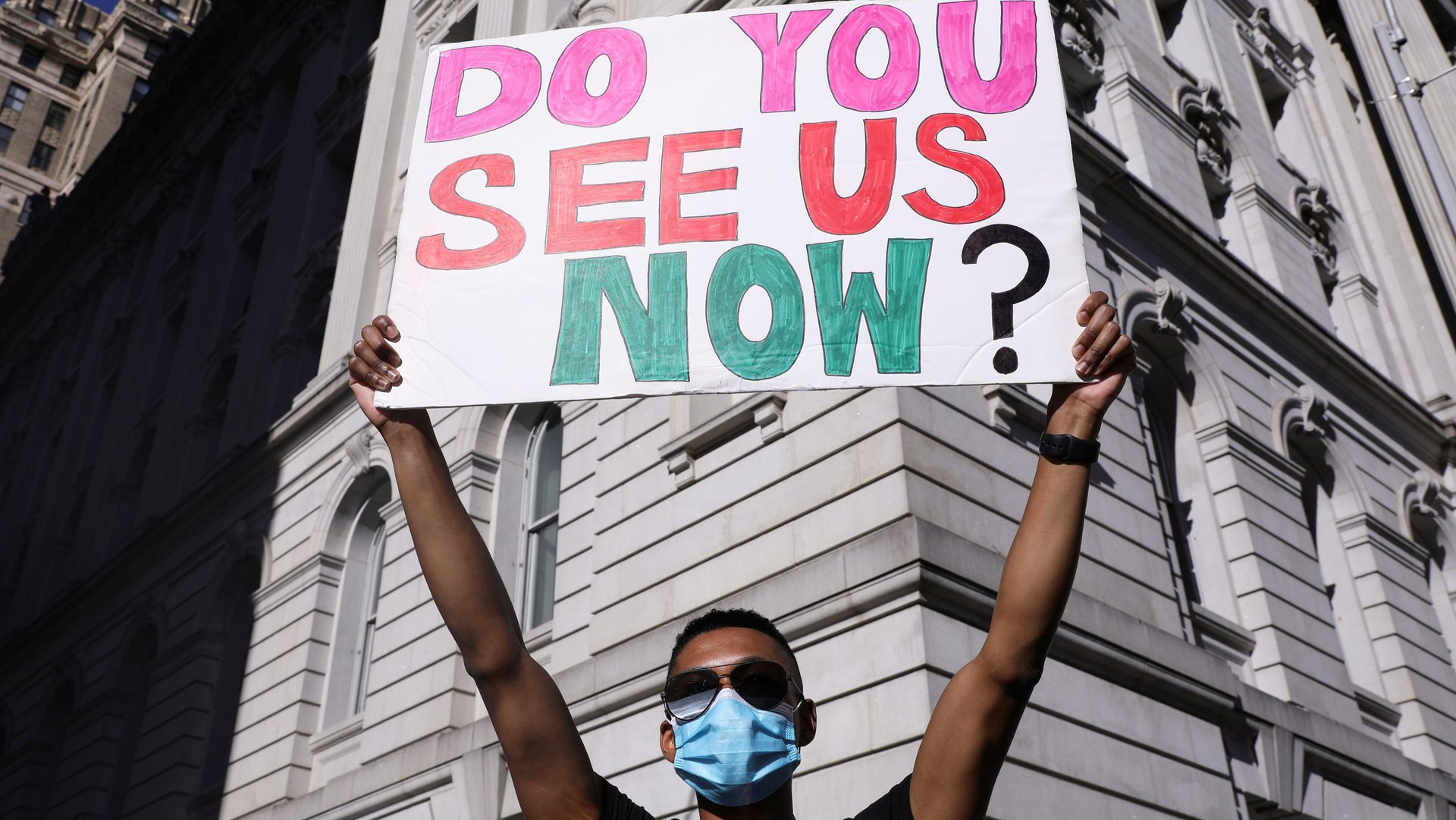American healthcare’s racist history helped fuel a fear of vaccines
If scientists develop a successful Covid-19 vaccine, the world’s next challenge is to ensure that as many people as possible get it. That effort could be challenged by skepticism of vaccines, especially in the United States: A recent Pew Research Center survey found that only 72% of Americans would probably or definitely get a coronavirus vaccine if it were available.


If scientists develop a successful Covid-19 vaccine, the world’s next challenge is to ensure that as many people as possible get it. That effort could be challenged by skepticism of vaccines, especially in the United States: A recent Pew Research Center survey found that only 72% of Americans would probably or definitely get a coronavirus vaccine if it were available.
And that figure is even lower among Black Americans, at 54%. This is important information to have in the fight against Covid-19: It can help public health officials identify where they need to work to increase trust in vaccines. But to earn that trust, healthcare agencies must first address the ways the medical field has failed Black Americans and inspired their doubt.
The United States has a long history of healthcare officials casting unvaccinated Black Americans as irrational. After the polio vaccine was introduced in 1955, outbreaks of the disease were predominantly found in poor, often Black communities. Government experts were quick to suggest that poorer people had “ignored” requests to be immunized, Elena Conis, history professor at Emory University, writes in ‘Vaccine Nation: America’s Changing Relationship With Immunization.’
The tone of those messages implied that ignorance was at the root of low vaccination rates. Scientists from the United States Public Health Service even suggested poorer people only read about “crime, disaster, and sports,” in newspapers and so weren’t aware of the available polio vaccines.
Meanwhile, the same US Public Health Service was conducting the infamous Tuskegee Study. As part of a purported study on syphilis, Black men in Alabama were lied to, denied treatment, and left to die. “If Black people were suspicious of the polio vaccine, it’s because eugenics was still happening in this country at the time,” says Terence Keel, professor at UCLA’s Institute for Society & Genetics and department of African American studies. Forced or coerced sterilizations of poor, Black women were so common they were known as “Mississippi appendectomies.”
Medical racism is still prevalent today. Black and Latino people have been killed by coronavirus at disproportionately high rates across the US. And racial disparities are evident across the medical field as a whole: Death rates from breast cancer are 40% higher among Black women compared to white women, for example, while Black mothers die in childbirth at three to four times the rate of white women.
“The past and present are collapsed in my mind,” says Keel. “African Americans have been systemically disenfranchised from the healthcare system in this nation. This is not lost on Black Americans.” This historical and existing racism contributes to mistrust, including vaccine hesitancy, among Black Americans.
Decades on from the polio vaccine, healthcare officials still have a tendency to dismiss vaccine concerns as irrational. “There is a general anti-science, anti-authority, anti-vaccine feeling among some people in this country—an alarmingly large percentage of people, relatively speaking,” Anthony Fauci, director of the National Institute of Allergy and Infectious Diseases, said in June.
This attitude assumes that anyone with fears is an irrational conspiracy theorist. “There’s an anti-science ideology that’s quite different from Black people having a historical suspicion,” says Keel.
Instead, the onus should be on public health authorities to inspire trust in citizens. “I don’t use the word mistrust or distrust. I talk about trust-worthiness,” says Vanessa Northington Gamble, professor of medical humanities and American studies at George Washington University. “That flips it from, ‘these distrustful African Americans’ to ‘what have you done to get their trust?’”
Despite justified skepticism of the medical system, Black people are not more likely to refuse vaccines for their children. It can take work and resources to get a vaccine exemption, says Bernice Hausman, professor of public health sciences at Penn State University, and so white wealthy people may be more likely to pursue this option. Plus, people don’t always act on their fears. “Someone can have more skepticism because of a longer understanding of what medical racism means,” says Deirdre Cooper-Owens, professor of the history of medicine at University of Nebraska-Lincoln. “That doesn’t mean they’re not going to get their children vaccinated.”
Regardless of why someone might be wary of a vaccine, insulting those with fears does little to rectify the problem. “The issue around mistrust is not whether it’s legitimate,” says Hausman. “It’s whether it’s there and what you’re going to do to repair it.”
Researchers should share the full data of vaccine studies, including the demographics of participants, says Keel. “Medical science operates with a tremendous amount of hubris. It believes it has the truth and everyone else has to fall in line,” he says. Sharing information will allow people to make an informed decision.
And while the world waits for a vaccine, public health officials should prioritize demographics at greater risk, for example by supporting testing within African American and Latino American communities. “A white medical industry has never taken Black pain and suffering and illness as seriously and passionately as compared to white folk and rich folk,” says Cooper-Owen. “Blaming patients isn’t a fruitful exercise. As a system and structure, we need to transform.”